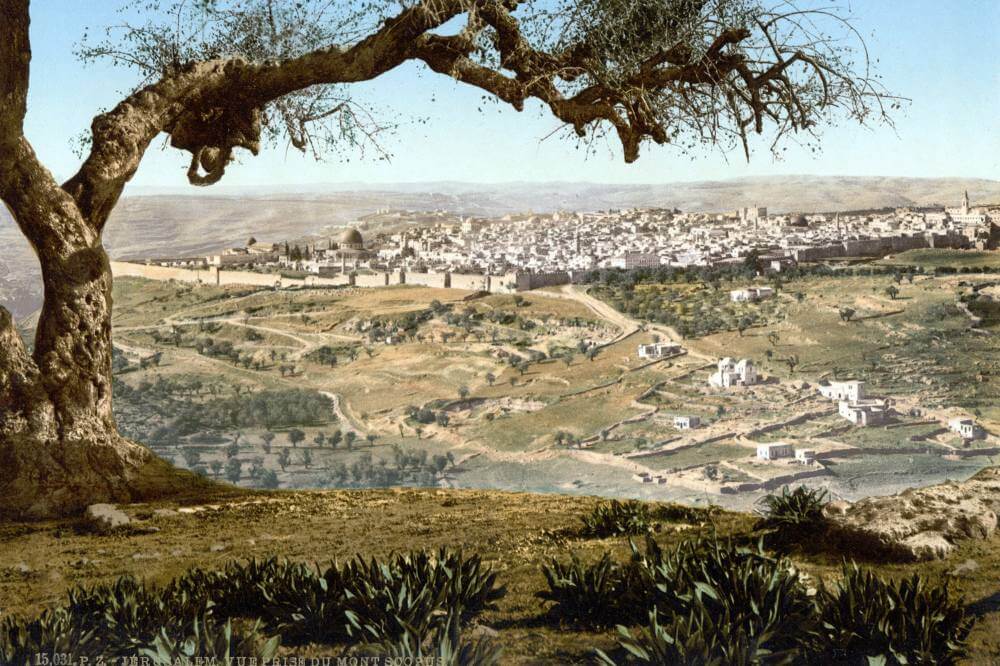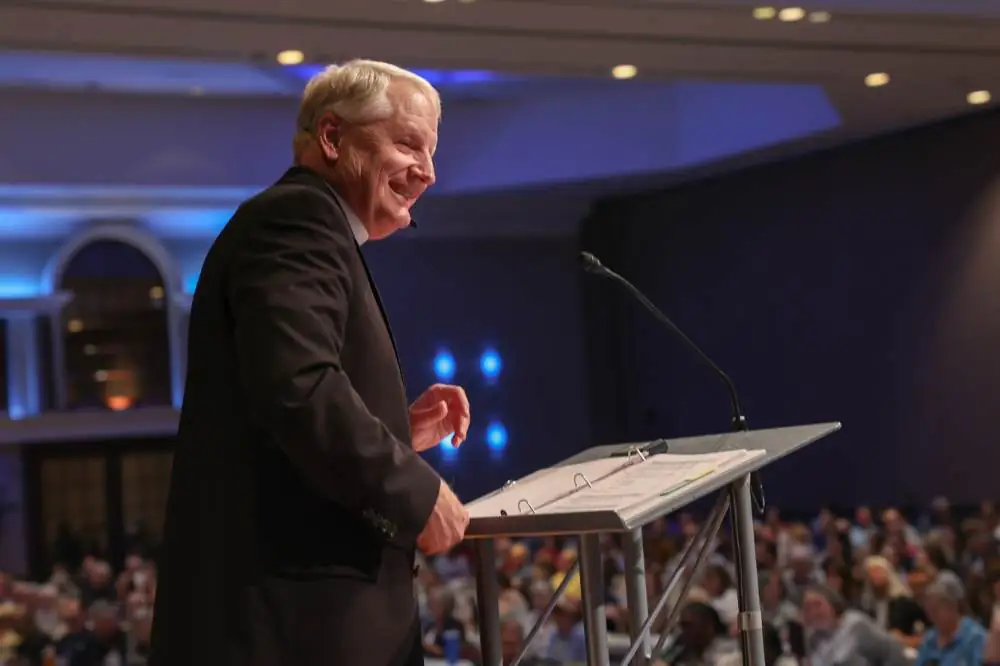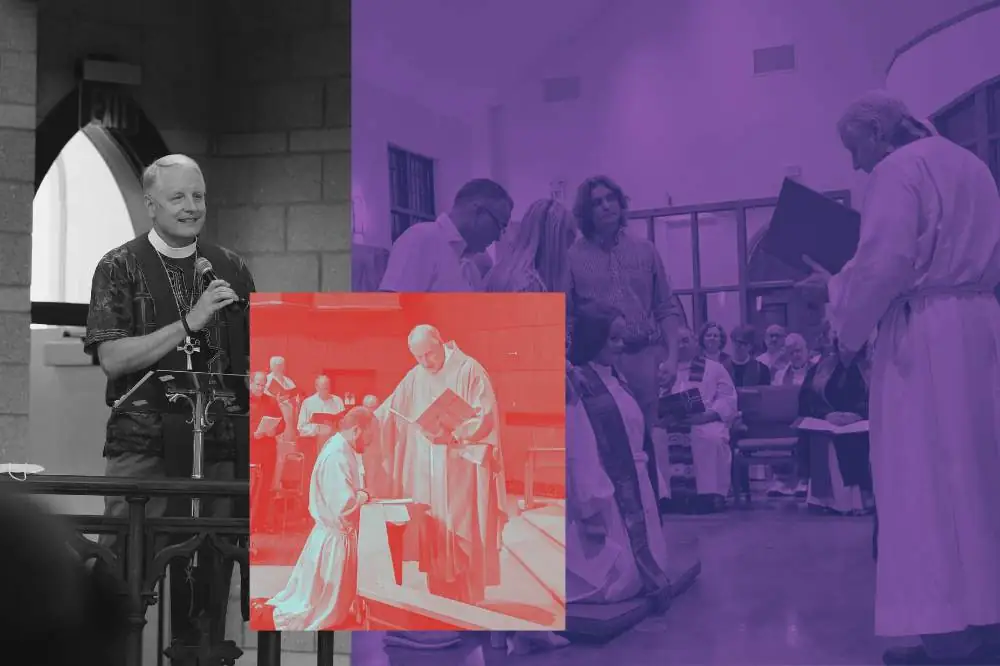Lutherans have always loved a good paradox. In a world that would seduce us into either/or camps—us vs. them—we’ve always known that we are saint AND sinner, already AND not yet, justice AND mercy, law AND Gospel people. I get that there are times when we must indeed choose, perhaps in the political realm and especially from a military perspective. Still, false dichotomies drive a wedge into God’s greatest gift of relationship. Fundamentalism is the weapon of choice in these extreme dichotomies. History shows us over and over that with fundamentalism’s absolutes, in order for me to be right, you must be wrong. In order for me to be saved, you must be damned. Ultimately, in order for me to live, you must die. This is where, once again, we find ourselves in the ancient conflict between Israelis and Palestinians manifesting this time around in the Israel-Hamas war.
The brazen and brutally ruthless recent sneak attack on innocent Israeli and other citizens by Hamas is unthinkable, unacceptable, and we appropriately denounce it thoroughly. That much most people in the international community, including many, if not most, Palestinians, seem to agree on. One could hardly expect no retaliation for such atrocity. But anything beyond these statements hinting at not just pulling drowning folks out of the river but going upstream to see if you can help them from falling in evokes visceral reactions from religious as well as political pundits. We have received more negative communication than ever before over what our ELCA presiding bishop said early on about this conflict. The most common accusation tying all those contacts together is one word: antisemitic. Lutherans are antisemitic, folks said, for even hinting that there might have been any systemic persecution or abuse of the Palestinians that—while not excusing the actions of Hamas (nothing could)—might explain some of the realities contributing to desperate measures by victims of Israeli settlements, occupation, walls, sanctions, etc. In other words, in a world that in grief, fear, and anger seems bent on choosing “We stand with Israel” or “We support the Palestinians,” we dare to consider both/and in terms of support and neither/nor in terms of Zionist or jihadist platforms.
Israel maintains, not incorrectly, that Hamas is a terrorist group, that Hamas is, even so, the official government of Gaza, that Hamas hides in tunnels under hospitals and refugee camps thereby putting fellow innocent Palestinians in danger, and so on. So complicated. So tragic. This is where I think—perhaps strangely at first glance—of Eve, the mother of Cain and Abel, near the very beginning of scripture’s narrative about the challenge of human interaction and relationship. Abel’s offering was pleasing to God, but Cain’s wasn’t, so Cain killed his brother Abel. Aren’t you just certain that while Eve grieved her murdered son, she also grieved her murderer son who was then banished? And that the Father of the so-called Prodigal Son grieved not only his wayward and squandering son but also his self-righteous son who refused to celebrate? My point is that life and relationships are complicated. Like the social media meme simply yet poignantly states, it’s entirely possible to be heartbroken for more than one group embroiled in brokenness and conflict. While consequences are real and unavoidable, humanly speaking, we long for and cling to the ultimate promise of reconciliation.
I’m surely no expert on this conflict in the Holy Land that is thousands of years old. But in 1990 I read a book that helped open up my understanding of that conflict from the point of view of the Palestinians. The book was called Blood Brothers by Elias Chacour. He spoke to the NC Synod group on our 2018 trip to the Holy Land, along with Mitri Raheb and others. They are Palestinian Christians, and Raheb is a Lutheran pastor. Augusta Victoria Hospital is our Lutheran World Federation hospital serving Palestinians in the Holy Land and funded, in part, by the U.S. Government. Whatever else I might say here, I need to assure you that not all Palestinians, not even most Palestinians, are terrorists. Likewise, as evidenced by increasing protests among Israelis prior to this current war, not all Israelis agree with the settlements and occupation of Palestine. And neither does international law that established both the nation of Israel and the Palestinian territories in 1948.
Finally, I want to remind those who seem seamlessly to equate the current political state of Israel with the “biblical Israel.” Given that the Bible is a library, a collection, of books about God’s people, scripture itself clearly indicates that “Israel” geographically is always in flux. For most of its history Jews and Canaanites (read Palestinians) lived, worked, played, and even fought, side by side in this geographical crossroads of the ancient world that necessarily had to be traversed for any commerce, travel, or conflict between wealthy and powerful Egypt to the south and the rising and falling powers of Assyria, Babylon, and Persia to the north and east. The conquest kingdom of King David was the zenith of Israel’s geographic expansion and control, in roughly 1000 BCE, and that was only a brief blip in Israel’s long history. By the end of his son Solomon’s reign—so much for wisdom—the temple in Jerusalem had finally been built alright, with conscripted (slave) labor, and the kingdom United was split into the nations of Israel to the north (10 tribes) called Israel, and the nation of Judah to the south (tribes of Benjamin, Judah, and Levi). Jerusalem was actually part of Judah, to the south. These nations of Israel and Judah, both of whom worshiped Yahweh and followed the law of Moses, fought one another from time to time and despised each other over who worshiped correctly and who was more pure in Mosaic law. Hundreds of years of “biblical Israel” involved sojourn or exile in the foreign lands of Egypt and Babylon.
Like Hawkeye reminded Father Mulcahy during a MASH episode, war is worse than hell. When Fr. Mulcahy asked why, Hawkeye asked, “Who goes to hell?” “The wicked,” said the priest. Hawkeye went on to explain that in war that’s not how it is. The innocent suffer the most, not the wicked, at the whims of the relatively few powerful in government, military, and economic terms. For the life of me, as horrific as it is to fathom what Hamas did and is doing, it doesn’t seem that killing and destroying and displacing and annihilating tens if not hundreds of thousands more innocent people will somehow bring an end to this conflict. More violence will beget more violence, history has taught us. I, therefore, join the voices calling and praying for a ceasefire and an upcoming Advent-renewed focus on the Jew who comes among us as the one who will fulfill the ancient prophesies of our swords beat into ploughshares and our spears into pruning hooks for all nations, the Prince of Peace who taught us, “You have heard it said, an eye for an eye, but I say to you, ‘Love your enemies…’”
Lord, have mercy.
Walking with you,





